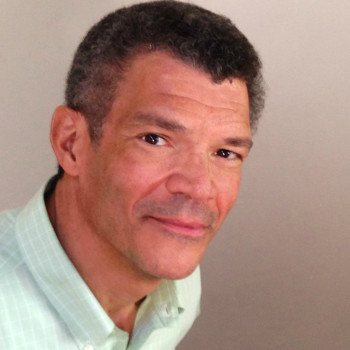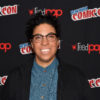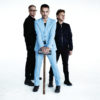In his long career, journalist Mark Whitaker has been (among other positions) managing editor of CNN, and a reporter and editor for Newsweek magazine. His latest book “Cosby: His Life and Times” takes a serious look at an influential performer, from his earliest days struggling to find himself in 1960s New York, through his personal tragedies and complicated public perceptions. Whitaker takes Rico through Cosby’s woodshedding years, and recalls an album full of wonderfulness.
For more from this interview, including conversation about the birth of “The Cosby Show” and about Cosby’s recent controversial stances on race and responsibility, listen to an exclusive additional segment.
Rico Gagliano: Believe it or not, there are people hearing this show who were not alive when Bill Cosby was in his heyday, from the ’60s to the ’90s. For them, can you maybe get across how seismic an impact this guy had on show business?
Mark Whitaker: Well, I think what most people remember him for is “The Cosby Show,” which debuted thirty years ago this week, September 20th, 1984, and went on to become the most successful show of the 1980s. It was the number one show on television for five straight years. It revived the sitcom genre; at the time, people thought situation comedies were dead. It rescued NBC, which was in the cellar among the networks. And it laid the groundwork for all the great sitcoms that came after it: “Roseanne,” “Seinfeld,” “Home Improvement,” etc.
Rico Gagliano: Sort of non-joke-based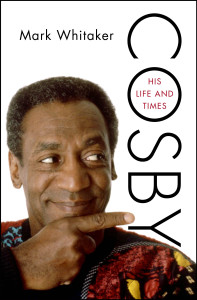 , and more natural…
, and more natural…
Mark Whitaker: Yeah, more naturalistic. You know, kind of, “tell a story and then find a way of making it funny,” as opposed to just joke after joke.
Rico Gagliano: Sure.
Mark Whitaker: But the impact of that show was so seismic that I think a lot of people forget that before that, Bill Cosby already had been a show business pioneer several times over. First with his standup comedy in the ’60s. His comedy albums which people of a certain generation grew up on, and remember all those routines.
Rico Gagliano: Let’s start in the early ’60s. One thing that struck me — when he was doing standup back then — I had no idea he started out playing the same clubs as Dylan and the other folk stars of the era. He was really kind of a part of that folk scene.
Mark Whitaker: Yes. He gets a summer job at a place called The Gaslight Cafe. That’s where Dylan hung out, and, you know, at the time, the Village was where it was happening. That’s where there was kind of a hive of folk singers, jazz pioneers, and you also had this new breed of comedian.
Rico Gagliano: This is what is fascinating to me, actually. This is an era where there’s a lot of angry, political comedy going on. And he specifically chose not to do angry, political comedy — even though, as a black man growing up poor in the projects of Philadelphia, he could have. Why didn’t he?
Mark Whitaker: Well, an interesting thing is, he started out modeling himself after Dick Gregory. His comedy was very barbed, full of social commentary. And, actually, that first summer in The Gaslight Cafe, The New York Times does a feature story on [Cosby] and they describe him “throwing spears, angry spears,” at the White audience.
Rico Gagliano: Not at all a racially-charged term!
Mark Whitaker: Right, exactly. And he describes himself, compares himself to Dick Gregory. When he saw that in print, he has this epiphany and he realized, you know, “I don’t want to be Dick Gregory. I want to have my own distinctive voice.” And it was at that point that he really committed to developing a completely different style, not only than Dick Gregory, but from all the other comedians in the Village of the time. Based less on telling jokes than telling stories, and making them funny.
Rico Gagliano: This often caused him problems, though, with Black audiences at the time. I’m thinking of, after he became a star on the TV show “I Spy,” there’s this story you tell in the book about him playing the Apollo Theatre in Harlem and, basically, no one showed up.
Mark Whitaker: Yeah.
People had told Cosby, “You gotta play the Apollo.” And he had been sort of arrogant about it. He had said, you know, “Come see me at Madison Square Garden.”But, after [Martin Luther] King is assassinated, he decides he has to go play the Apollo. And his first night they can’t even fill the hall.He asked the promoter, guy named Pete Long, what happened. He said, “In Harlem, this community, they see you on TV playing a spy… They think you work for The Man.”
Rico Gagliano: And, specifically, because he’s like a sidekick to a white guy, too…
Mark Whitaker: He’s a sidekick to a white guy! And who is this guy? And anyway, so, the fact was that Cosby, privately, was a big supporter of civil rights, and he had asked that all the proceeds from that concert be donated to Malcolm X’s widow. So he basically said, “Put the word out on the street that I’m a real brother.” And once that word went out to the Black community, and also his white fans from downtown found out he was playing the Apollo, the house was packed.
Rico Gagliano: But he was always having to kind of prove himself, his bona fides, to both audiences…
Mark Whitaker: He was, but, you know, he stood his ground. He took heat for this from the very beginning. “Why aren’t you being more political?” Basically, his position, with his comedy, with the character he played on “I Spy,”
He said, look, I’m going to make more of a statement by, first of all, showing people what they have in common rather than their differences. And also making the point that you don’t have to conform to this stereotypical modelof either the Black comedian and entertainer just shuffling and dancing for a White audience or, you know, kind of being angry at them in order to succeed.
Rico Gagliano: Do you remember your first time encountering his comedy?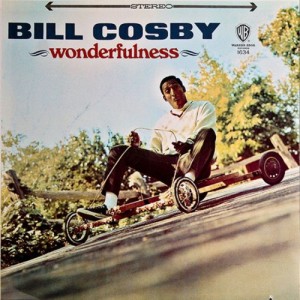
Mark Whitaker: I remember it very vividly. And, you know, on some level, I think it’s why I wanted to tackle him as a subject.
I was nine years old. My dad is Black, my mom is White. They had divorced when I was six years old, and my father sort of dropped out of our lives. She got a teaching job in a little town in Massachusetts where there were no other people of color.
One day, I’m nine years old, she brings home an album with this handsome young black man, just two years younger than my father, joyously riding a go-kart on the cover. And it’s called “Wonderfulness.” There are these hilarious stories of, you know, getting his tonsils out… I just laughed until I wept, at a time when I needed laughter in my life. But also, I think — and I didn’t really think about it at the time that clearly — but in retrospect, here was a kind of black role model figure in the absence of my father.
